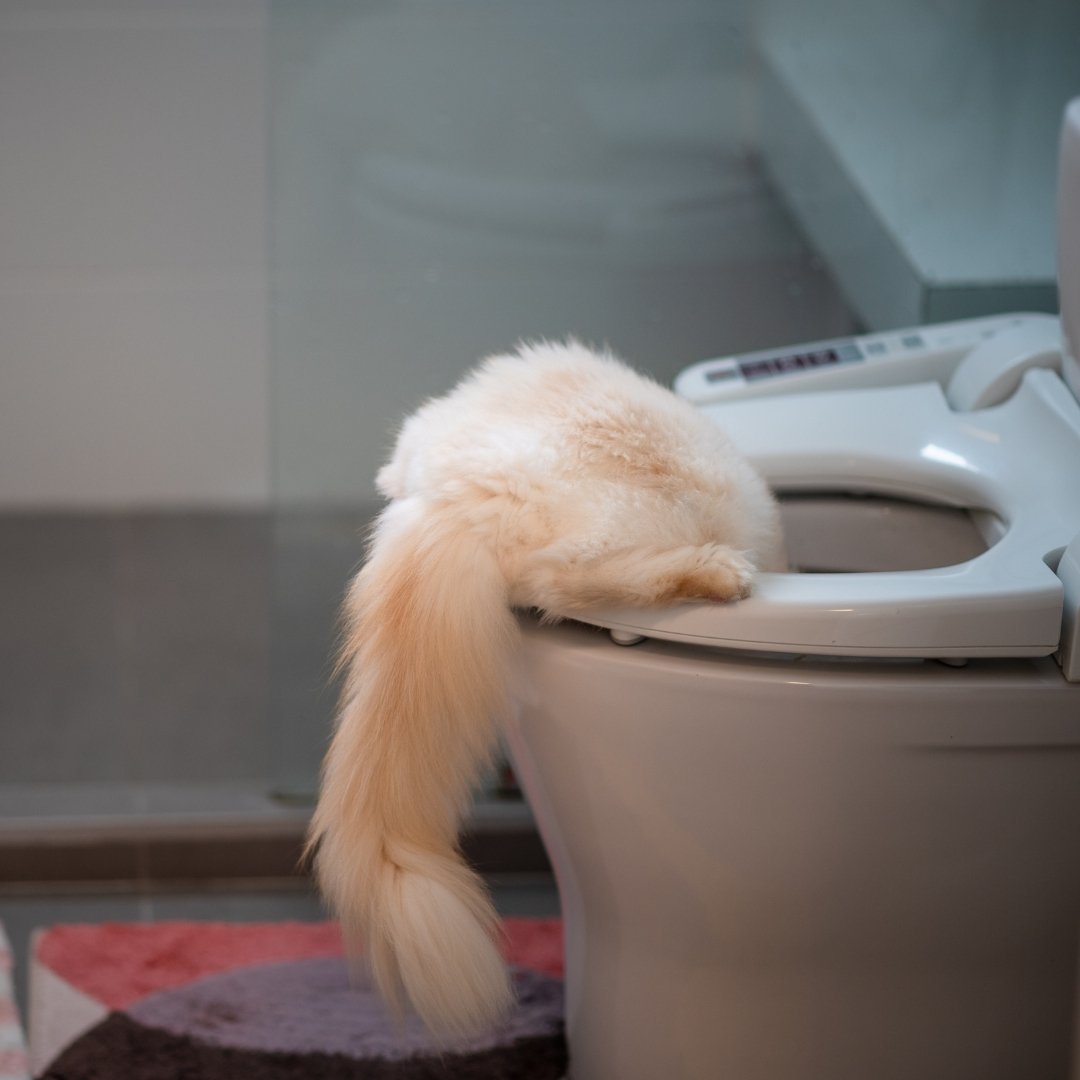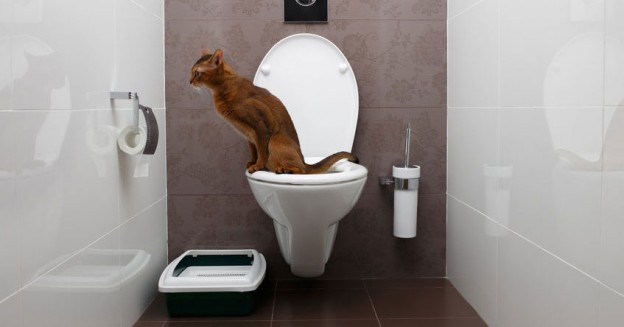Which You Have to Never Get rid of Animal Waste Down the Toilet
Which You Have to Never Get rid of Animal Waste Down the Toilet
Blog Article
Every person has their unique theory involving 10 Things You Should Never Flush Down The Toilet.

When it involves disposing of waste, specifically animal waste, many individuals frequently resort to the practical choice of flushing it down the bathroom. Nevertheless, this apparently very easy service can have severe consequences for the setting and public health. In this short article, we'll discover why flushing pet waste down the toilet is a bad concept and provide alternate approaches for appropriate disposal.
Introduction
Appropriate waste disposal is important for keeping environmental sustainability and public health. While it may seem harmless to purge animal waste down the commode, it can cause various issues, both for the environment and human health.
Threats of flushing pet waste
Ecological influence
Flushing pet waste introduces dangerous bacteria and microorganisms right into waterways, which can negatively impact aquatic ecosystems. These microorganisms can pollute water sources and harm marine life, interfering with fragile environments.
Public health worries
Animal waste has unsafe bacteria such as E. coli and Salmonella, which can present serious wellness dangers to people. Flushing pet waste down the commode can infect water products, leading to the spread of illness and infections.
Alternatives to flushing
Instead of flushing animal waste down the toilet, there are several different disposal techniques that are more environmentally friendly and sanitary.
Composting
Composting pet waste is an environment-friendly method to take care of it. By composting, organic matter is broken down into nutrient-rich soil, which can be made use of to fertilize gardens and plants.
Landfill disposal
Throwing away animal waste in a land fill is an additional choice. While not as eco-friendly as composting, it is a more secure option to flushing, as it avoids the contamination of water resources.
Family pet garbage disposal systems
There are specialized animal garbage disposal systems readily available that securely and hygienically throw away animal waste. These systems often make use of enzymes to break down waste and eliminate odors.
Steps to proper animal waste disposal
To make certain proper disposal of pet waste, adhere to these actions:
Scooping and getting waste
On a regular basis scoop and bag animal waste making use of biodegradable bags. This prevents waste from polluting the environment.
Using designated waste containers
Dispose of bagged animal waste in marked waste containers, such as compost containers or land fill bins. Prevent flushing it down the toilet at all prices.
Cleansing litter boxes and pet locations routinely
Routinely clean litter boxes and pet locations to stop the build-up of waste and microorganisms. Use pet-safe cleansing items to keep health.
Benefits of correct disposal methods
Taking on proper disposal techniques for animal waste offers a number of benefits:
Lowered environmental pollution
Proper disposal methods lower the risk of environmental pollution, shielding rivers and environments from contamination
Lessened risk of water contamination.
By preventing flushing pet waste down the bathroom, the risk of water contamination is considerably lowered, protecting public health.
Boosted cleanliness and hygiene
Proper disposal methods advertise much better hygiene and check here health, producing a more secure atmosphere for both humans and animals.
Final thought
To conclude, flushing animal waste down the commode is harmful to the atmosphere and public health. By adopting alternative disposal techniques and complying with appropriate waste monitoring techniques, we can lessen the unfavorable impact of animal waste and add to a cleaner, much healthier earth.
What To Do With Dog Poo – The Do's And Don'ts Of Disposing Of Faeces
Dog poo bins
Some councils provide dedicated dog waste bins in popular dog-walking areas that can take dog poo that has been bagged but you can legally dispose of dog waste in any public litter bin, as long as it is securely bagged. This also applies to your wheelie bin at home.
Do not flush
Water companies do not recommend flushing dog faeces down the toilet because certain parasites can survive the water processing treatment and are potentially harmful to humans. You should also never consider flushing dog poo that has been bagged down the toilet as the bags will not break down and instead create severe blockages in the sewage system.
In the woods
The Forestry Commission promotes a ‘stick and flick’ method for dealing with waste in the woods. This means finding a stick and using it to flick any poo from off the path so that it is out of the way of other walkers. You could also bury it as long as it is not in an area where there might be livestock.
Livestock
Parasites found in dog poo can be transmitted to livestock if they inadvertently eat infected faeces that has been left on grazing land. This could result in the death of sheep or abortion in cattle so you should always make sure you pick up your dog’s waste in fields where livestock could be present.

Routinely clean litter boxes and pet locations to stop the build-up of waste and microorganisms. Use pet-safe cleansing items to keep health.
Benefits of correct disposal methods
Taking on proper disposal techniques for animal waste offers a number of benefits:
Lowered environmental pollution
Proper disposal methods lower the risk of environmental pollution, shielding rivers and environments from contamination
Lessened risk of water contamination.
By preventing flushing pet waste down the bathroom, the risk of water contamination is considerably lowered, protecting public health.
Boosted cleanliness and hygiene
Proper disposal methods advertise much better hygiene and check here health, producing a more secure atmosphere for both humans and animals.
Final thought
To conclude, flushing animal waste down the commode is harmful to the atmosphere and public health. By adopting alternative disposal techniques and complying with appropriate waste monitoring techniques, we can lessen the unfavorable impact of animal waste and add to a cleaner, much healthier earth.
What To Do With Dog Poo – The Do's And Don'ts Of Disposing Of Faeces
Dog poo bins
Some councils provide dedicated dog waste bins in popular dog-walking areas that can take dog poo that has been bagged but you can legally dispose of dog waste in any public litter bin, as long as it is securely bagged. This also applies to your wheelie bin at home.
Do not flush
Water companies do not recommend flushing dog faeces down the toilet because certain parasites can survive the water processing treatment and are potentially harmful to humans. You should also never consider flushing dog poo that has been bagged down the toilet as the bags will not break down and instead create severe blockages in the sewage system.
In the woods
The Forestry Commission promotes a ‘stick and flick’ method for dealing with waste in the woods. This means finding a stick and using it to flick any poo from off the path so that it is out of the way of other walkers. You could also bury it as long as it is not in an area where there might be livestock.
Livestock
Parasites found in dog poo can be transmitted to livestock if they inadvertently eat infected faeces that has been left on grazing land. This could result in the death of sheep or abortion in cattle so you should always make sure you pick up your dog’s waste in fields where livestock could be present.

Do you like reading up on 4 Reasons Why Dog Poop Cleanup is Important? Put a comment directly below. We'd be happy to know your reactions about this article. We are looking forward that you visit us again in the future. Make sure you take the opportunity to distribute this post if you liked it. Thanks for your time. Revisit us soon.
Click Here Report this page